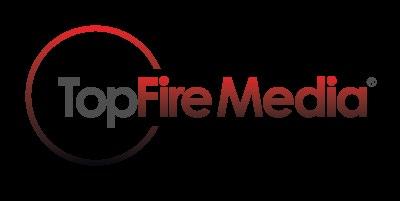




More hands-on experience than any other firm
• Consultants with over 900 years of franchise experience
• 98 out of the top 200 franchise companies
• Offices in Chicago, Dallas, Atlanta, Miami, and Dubai
More “senior level” experience
• Hands-on experience at start-up and established franchisors
• Former CEOs, CFOs, EVPs of more than 50 different franchise companies
Adecco, Armstrong Tile, Auntie Anne’s, Capriotti’s, Dunkin Donuts, LINE-X, McAlister’s Deli, Pearle Vision, McDonald’s, PIP Printing, RE/MAX, Snap-on Tools, and other national brands
The ability to bring more resources
• Hands-on experience at start-up and established franchisors
Breadth across four functional areas • Strategic planning
Quality control
Marketing • Organizational development


A premier fully-integrated public relations and digital media agency specializing in franchised businesses
• Public Relations
• Search Engine Marketing
• Content Marketing
• Social Media Publishing
• Pay-Per-Click Advertising
• Website Design & Development
Proprietary AI driven ”Look-Alike” model that drives leads at less than half the national average CPL Team with Hands-On Franchise Experience
• Real world experience with nearly two dozen brands
• Efforts have resulted in tens of thousands of franchise leads
• And many hundreds of franchise sales
Recent honors and awards:
• Top supplier from Entrepreneur five years in a row
• Best New Agency (Ragan & PR Daily Ace Awards)
• PR Agency Elite – Mission: Fit to Own (PR News)
• Best Website Finalist (PR News)
• Best Media Relations Campaign Finalist (PR News)
• Best SEO Finalist (PR News)






A premier franchise development and sales organization
Helps emerging brands realize their full potential
Placed over 1,100 units with more than 600 franchises

Beyond sales, serves as an outsourced development partner with a consultative process
Support brands across diverse sectors
• Residential and Commercial Services
• Automotive
• Quick-service Restaurants
• Fitness
• Health and Wellness
• Beauty
• Pet
• Youth Enrichment
• And more
Recent honors and awards:
• Top Supplier Award from Entrepreneur
• Employee Satisfaction Award from Franchise Business Review



• FTC rule 436 cites three elements that legally define a franchise:
The use of a common trademark
The exercise of control or provision of assistance
The collection of fees, royalties, mark-ups, or other monies from the franchisees
• If you have all three elements, you are a franchise, regardless of what you call it
• Some state definitions vary, but are similar
• Do not have to use the “f-word”





• Leverage Capital
• Speed of Growth
• Motivated management
• Reduced risk
• Few operational concerns
• Higher quality
• Organizational leverage
• Must “share profits”
Franchise unit will usually generate less profit than a profitable unit
But far more profit than an unprofitable company-owned operation
• Less Control
• Good relations with franchisees take work
• MYTH: Litigation

• Certain levels of profits
• Sell company for a specific amount
• How much are you willing to invest and re-invest?
• What other resources do you have to bring to bear?
Conduct Cash Flow Analysis to See if You Can Reach Your Goals
• Goal = Sell company for $10 million at the end of five years
• Two units in operation
• Total Equity Investment in New Operation = $150,000
• Total available capital = $200,000
• Existing Free Cash Flow for Reinvestment = $100,000/year
• Units Break Even in First Year
• After that, Free Cash Flow from New Units = $50,000/year/each

Franchisee typically pays
• Franchise fee average about $25,000 to $35,000
• Royalty range between 4% and10%
• Advertising fees range between 1% and 2%
• Franchisor will often sell product to the franchisee
Franchisor typically provides
• Trademark and branding
• Initial training
• Operations manual and systems
• Ongoing supervision and support
• Other support services



Proven prototype
Credibility
Differentiation

Buyer
Value
Teachability



• Exceptions: Direct sales of a proprietary product, prototype operations that may differ from the franchise offering but provide prototype operational knowledge, etc.

3. A venue to test operational refinements (new products, marketing, etc.)
4. Defense against accusations of misrepresentation
• While not legally required, failed franchisees could sue for fraud

• If you do not have an operating unit (and presumably no FPR), they can claim fraud even if you never said a word
• If you show no units or unprofitable operations, a jury may be more likely to side with your franchisee
5. “I saw the angel in the marble and carved until I set him free.” Michelangelo
Prospects will not buy unless you make them believe they can succeed
• That said, 40% say joining a “known brand” is not vital
• And 40% prefer a known brand but are open to new concepts
• In fact, some franchisees are looking for “the next new thing”
Credibility can be demonstrated in a variety of ways
• Years in operation
• Number of units
• Financial performance
• Management and staff credentials
• Look and fee of the operation
• Press clippings, awards, and other notoriety
• Perception of customer acceptance
Credibility can be improved through
• Strong franchise marketing materials
• Professional website design
• Franchise sales videos
• Operations manuals, training videos, Learning Management Systems, etc.
• Testimonials
• Use of a design firm
• Use of a public relations firm
• Strong social media campaigns
• Use of a Financial Performance Representation
• Hiring strong staff, well-known lawyers and consultants, etc.


Why buy from “the new kid on the block” if there is a bigger and better-established competitor who does the exact same thing?
Differentiation can be achieved in a number of ways
• Unit design, look, and feel
• Unique recipes
• Product assortment
• Ad campaigns and message, consumer positioning
• Price
• Service
• Investment level
• Business economics
• And many other means…
“Copycat” can work as a strategy if done right
• Speed of expansion – need for additional care
• “Fortress Strategy”




Hole
Where undifferentiated concepts go to die






EarlyToMarket
LateToMarket


• You sell the “sizzle,” not the steak – franchise sales is an emotional decision
• Sizzle, sex appeal, hot concept – the buyer wants to be part of something that they perceive as “fun,” enjoyable, happening, cutting edge, or that will otherwise appeal to their self image
• “Sizzle” can be achieved in several ways
Unit design, look and feel
Franchise marketing materials
Perceived consumer acceptance
Messaging
• Differences of opinion make horse races – Mark Twain
What you think is sexy may be a terrible opportunity for others
Almost anything can be given sizzle with good marketing and good messaging



Who will buy your franchise?
• Dentist for a dental franchise
• Restaurant for a restaurant offering
Advantages of a well-defined buyer
• Don’t have to compete for franchisees in the “general franchise marketplace”
Create a strong value proposition
• Branding and brand advertising
Two unites are better than one
Your brand may be stronger than you think
• Operations Manual and Training

• Someone who loves pets
• Someone who loves the outdoors
• Can focus on the emotions that your buyer will have
• Purchasing power
• Information technology
• Research and development (recipes, products, services, etc.)
• Assistance provided to your franchisees



• Train in three months or less
• McDonald’s has a one-year training program
• Train the business, not the technical expertise
Medical franchises
Real Estate
Complex Restaurant operations
• Will your success translate to other markets?
• Factors to consider include geography, location, climate, regional tastes, laws and regulations at a state or local level
• Every business has systems
• Need to get them out of your head and onto “paper”
• Brand consistency is imperative
• Tools
Operations Manuals
Formal Training Programs
Train-the-Trainer Programs
Training Videos
Learning Management Systems
Systemized On-site Support
• Assistance provided to your franchisees





Can my business provide adequate financial returns?

The franchisee should make a return on the time they invest
• No different than if they were to go out and get a job
• Salary should be “market rate”
The franchisee should make a return on their investment
• No different than if they invested in a stock
• Return should be commensurate with what they would make if they were to make an investment of similar risk
• Ability to sell back their investment at the end of the term
Franchisees expect that they will need to build their business
• Customized by employee
• Document what is reviewed and test scores
• Lowers on-site training time and costs for both the franchisor and the franchisee

• 15% for Owner Operators
• 20% for Area Developers (who will support additional overhead)



Does
my business have what it takes to succeed as a franchise?


Consulting and legal costs vary based on franchise company’s situation
• Desired speed of growth influences services needed
• Ability to work internally
Do not go into franchising undercapitalized
• Legal fees: $15,000 to $35,000+
• Consulting and Development: $40,000 to $250,000
• Organizational expenses: $10,000 to $25,000
• Franchise Marketing: $8,000 to $10,000 per sale (six months)
• Personnel: varies widely:
Can bootstrap growth
Can spend hundreds of thousands


Benchmarking
Initial Planning Session
Strategic Planning & Gap Analysis
Financial Sensitivity Analysis Disclosure Document
Franchise Agreement
State Registration Process
Operations Manual & Revisions
Training Program
Train-the-Trainer
Training Video Scripts SkyManual

Franchise
Implementation

The decision should be goal-driven
• Distance
• Speed
• Obstacles
• Risk tolerance Key to franchise success is to help your franchisees succeed!
You don’t have to choose only one vehicle!
Don’t decide to franchise!
Instead, decide:
• Do I need a third-party distribution channel?
• Do I want that channel to be branded?
• If it is branded, do I want to control quality?
• How do I want to be paid?
The law (or your lawyer) should never dictate your good business decisions

